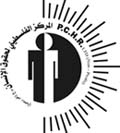The Palestinian Centre for Human Rights (PCHR) refutes the findings of the recently-published report from the Israeli Government Review Committee, titled ‘The France 2 Al-Durrah Report, its Consequences and Implications’, released on 19 May 2013. The report examines the incident involving the killing of a 12-year-old Palestinian boy, Mohammed al-Durrah, which occurred on 30 September 2000 at the Netzarim junction in the Gaza Strip.
The Government Review Committee was set up in September 2012 upon the instruction of the Israeli prime minister, twelve years after the incident took place. The committee claims to have extensively reviewed material related to the incident. Its key findings were as follows: there is no evidence that Mohammed or his father, Jamal, were wounded in the incident; the two were not struck by bullets at all; and the Israeli forces bear no responsibility for the incident.
PCHR carried out an investigation of the incident after it occurred, the findings of which completely contradict the assertions in the Israeli report. As a part of its investigations, PCHR’s lawyers collected affidavits from the following persons:
1- Mr Talal Hassan Abu Rahma, a photographer for France 2 television who witnessed the incident;
2- Mr Ma’ali Suleiman Hussain Selmi, head of the reception department at Shifa hospital in Gaza City; and
3- Mr Fathi Ahmed Mas’oud al-Louh, an ambulance driver who was present at the Netzarim junction on the day of the incident and was seriously injured by Israeli gunfire.
Abu Rahma, who was present during the incident, stated that Israeli forces fired intensively and intermittently at Mohammed and Jamal. The victims were then evacuated to Shifa hospital by ambulance, where Mohammed was pronounced dead on arrival. Mas’oid al Louh, who was present at the Netzarim junction on the day when the incident took place, stated that he had witnessed Israeli forces firing live bullets that day. Al-Louh also stated that, while tending to a number of injured persons, he himself was injured by a rubber coated metal bullet in his right leg, and shortly after that he was injured when a live bullet grazed the top of his head.
Israel, as an occupying power, is obliged to ensure that its forces respect and protect the human rights of Palestinian civilians in the Gaza Strip. However, PCHR’s investigation indicates that Israeli forces arbitrarily deprived Mohammed of his right to life, in violation of Article 6(1) of the 1966 International Covenant on Civil and Political Rights. Moreover, Israeli forces disregarded Articles 9 and 10 of the 1990 UN Basic Principles on the Use of Force and Firearms by Law Enforcement Officials, according to which they should not have fired at Mohammed and Jamal, as they did not pose any imminent threat of death or serious injury to the soldiers or any other person.
In light of the above:
a) PCHR strongly disputes the Israeli committee’s conclusions in the report;
b) PCHR strongly condemns Israel’s 12-year delay in examining the incident. This report challenges the very authenticity of the report which first brought the incident to attention. Given the nature of the incident, and the potential human rights violations related to it, this delay, in itself, constitutes a violation of customary international law norms, which establish that unreasonably prolonged delays in the examination and investigation of human rights violations result in a situation of impunity. The report does not provide any justification for this delay;
c) PCHR believes that this examination, and previous investigations into the matter, conducted by the Israeli authorities failed to meet international standards of independence, impartiality, transparency, promptness, and effectiveness; and
d) PCHR calls for an independent international investigation of the incident.

